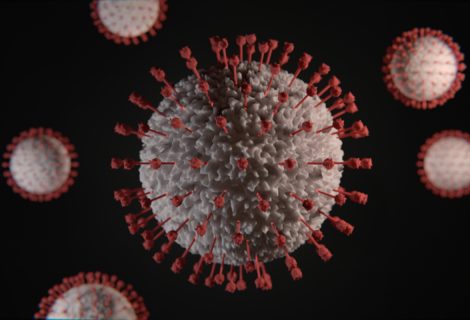How Teenagers Can Reduce Stress?
Welcome to the topic How Teenagers Can Reduce Stress?
What Stress actually is?
Stress could be a wildly misinterpreted definition in literal terms. It is the coping mechanism of your body against any external or internal challenge or obstacle, and it acts as the driving force to help you deal with the outcome or challenge. Stress can be of two main types:
- Positive stress
- Negative stress
A negative result cannot always accompany stress. If handled effectively for a shorter period of time, it can be the vital force in influencing your decision-making power and boosting up your efficiency to meet tight deadlines or working under pressure.
But if stress goes on for a more extended period, then it can definitely start interfering with the sleep schedule of a person, the thinking process, and the decision-making power. Thus, managing stress is particularly important in today’s time among teenagers as well as adults.
Reasons for Teenage stress:
Stress among teenagers has seen a sharp increase with the onset of social media, and because the individuals usually have negligible awareness about coping with it. A few reasons are listed below:
- Pressure from the academics
- Parental separation or divorce
- Body image issues
- Relationships with friends and boyfriends/girlfriends
- Financial issues
- Negative Self depreciating thoughts
- Change of surroundings
Causes of Teenage Stress
When starting to discuss how to manage stress, the first step must be to recognize the early symptoms so that other worsening situations can be timely prevented. Now, this step needs to be observed by the individual as well as the close circle of friends and family. If you find yourself excessively being caught up in the ones listed below, then chances are you are under stress.
- Lack of sleep/ Excessive sleep (disrupted sleeping schedule)
- Loss of appetite
- Mood swings
- Aggressive behavior
- Panic attacks
The primary key in the management of stress is to acknowledge the symptoms and manage to stay calm. The exact mechanism that turns on the stress can be turned off based solely on your perception and thinking process.
As soon as the body and mind decide that a situation is no longer challenging or stop taking it as an obstacle, changes start occurring in the body that helps reduce stress levels in an individual like, for example, a slower heartbeat or a sense of well-being. This type of response is known as “relaxation response,” and teenagers who develop this have a better response towards managing stress.

Remedies to prevent excessive stress:
Now let us talk about what you can do to relieve or prevent stress once you have effectively identified a few or all symptoms in yourself, or let us say, a close friend you might want to help
Improving the Sleep wake cycle:
It might seem very oblivious, but not getting enough of the daily sleep hours recommended can have adverse effects not only on the physical but also the mental state of any individual. It would help if you started going to bed early and got the recommended 8 hours of sleep daily.
What you can do is start by going to bed 15 minutes earlier from your previous routine and gradually increase the time so you can adjust to the new schedule comfortably. Furthermore, your activities right before going to bed count. If you get engaged in social media at night or drink coffee before bed, then you need to shift these to an early part of the day.
Regular Exercise:
Regular exercise has tremendous health benefits, especially in the treatment of stress, as not only does it physically engage the body and mind but also revive feelings of self-accomplishment and confidence in an individual. Setting goals during exercise can boost self-esteem and influence one to do better and be engaged in healthy activities instead of stressing out over petty issues.
You do not need to outdo yourself by working out abruptly after a regular schedule and mentally draining yourself. You can start by even 10 minutes a day in the morning and gradually increase the pace. Even three days a week is considered sufficient for a healthy routine, plus you can work out in any form, may it be jogging, swimming, walking your dog, etc.
Quality time with friends and family:
It is very natural to get all worked up in your early teenage years due to academic stress, peer pressure or family issues, but going through it alone is only being a contributing factor to your stress, not communicating is part of the problem.
It is essential to realize that at times someone close to you can make you feel better about yourself or even by just sharing your problem or anxiety; you will feel less burdened and overwhelmed. It could be anything from your regular schedule, like watching a movie or a night out that will make you feel rejuvenated and at peace.
Quality time with Yourself
Getting in touch with yourself is equally important as it is to get to know your friends. As a teenager, one’s thoughts and perceptions about the changing setting keep on shifting, so it is essential to keep track of your thoughts.
One way to do it is by journaling every day, talking to yourself, and listening to how things make you feel and how you react to them so you can have an overview of them for future decision-making.
Spend time in Nature
Taking a jog in a park or a morning walk can be stress relieving and cathartic. If you live near woods or a beach, you have the perfect opportunity to get outside and soak up some light that can be therapeutic.
Conclusion:
It is not necessary to be engaged in all of these at once; you can start slow but should be mentally and physically aware when is the right time to start working on it harder with more concentration or when to ask for help from peers. Even if you sense a few symptoms, it is at your own best to avoid them before it gets worse, and these tips will help you get a calmer approach to the challenges in life.
Also Read: 10 Natural Depression Treatments






Trackbacks for this post